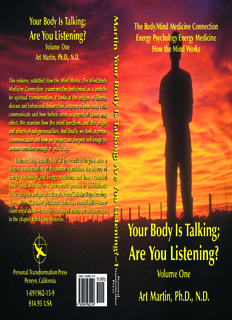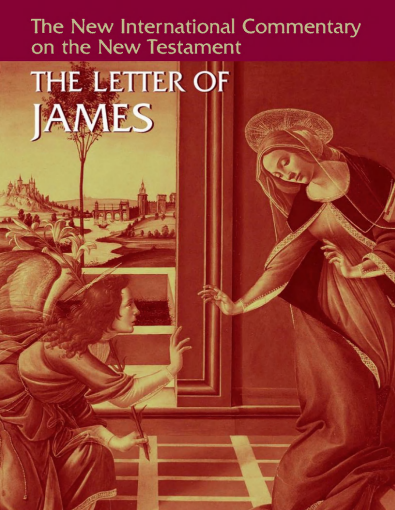How to write a Book Review Eye-Opening Guide
Section One: Just Beginning? Select a Category First. Regardless of the type of review you write, it's critical to formulate a concise thesis and provide supporting details. You must first classify your subject, whether you are writing a review of a book, a movie, or something else entirely. This will help you focus and make a stronger case for your position. What kind of book, if you are reviewing one, is it? A book on history? A love affair? A novel on psychology? A manual for doing something? Is it fiction? A life story? When you review a film, is it a drama, comedy, documentary, or action-adventure? The kind of content you are evaluating greatly influences how you shape your judgment about it. Ask yourself “What category does my subject fit?
Apply Your Professor's Requirements
After classifying your subject, you must employ a precise set of standards to guide your decision-making. Professors frequently provide students with a list of questions or criteria to utilize when assigning reviews. Follow the list your teacher has provided if they have, but keep in mind that not all of the items on a professor's list may be necessary. Verify whether the things on the list are required or optional. Try searching for terms that end in "such as" or "for example" to get ideas for optional but potentially helpful items. The phrase "including but not limited to" means that while you are free to add more items, you are required to include particular ones. The list of criteria or questions does not need to be explicitly stated in your review, but it should be clearly implied in your writing.
A set of requirements is crucial since it compels the author to produce more in-depth analyses of the theme or story than just a cursory synopsis. It also aids in avoiding offering merely nebulous advice. The writer has something to work with when it comes to criteria. Here are a few items you might want to think about:
Form an Opinion
You can reach a logical and well-informed decision once you have specified the criteria you are going to use. Determine your main points of contention for the topic. Steer clear of adjectives like "best" or "worst." If you come across as overly optimistic or pessimistic, your readers won't believe you. Instead, construct a working thesis statement based on a well-reasoned opinion.
Assemble Evidence
"In order to make a strong case, you must support your arguments with facts. The good news is that examples from the subject itself will serve as your primary source of evidence. When evaluating a book, provide instances from the text to bolster your arguments. Give a specific instance from the book to support your claim that the characters are not credible.
Put It All Together
"At the end of your review, make sure to summarize your findings. This will reaffirm your points and give the work closure. Reviewers most frequently make the mistake of providing an excessive amount of plot synopsis and insufficiently specific evaluation criteria. Remember this when you put on your critic's hat and compose your review.
Section two "The Art of the Review," an evaluation of a work is what a book or movie review is. Reviews provide an assessment in addition to reporting on a work's substance and evaluate the piece taking into account the author's reasoning, evidence, argument, and structure. These objectives are completed by the book review in a constrained amount of words, often 500–750 words, or 2-3 double-spaced pages [unless the instructor specifies a different length requirement]. It's crucial to approach the book review as a brief essay, with an introduction, a body, a conclusion, and an argument.
The First Paragraph or Introduction
"A book review's introduction should start with the book's full citation [in the appropriate citation format] at the top of the review. One concise statement summarizing the book's argument should appear in the opening paragraph. Describe the book's themes and provide your opinion on its overall merits and shortcomings. Similar to essays, a strong book review should have a thesis statement that summarizes the point you will be making. An example of a thesis statement would be, "Historian Benjamin Schmidt successfully demonstrates the relevance of Dutch activities in the new world in his book Innocence Abroad." According to this thesis statement, the author was successful in presenting the book's purpose and argument, but set for the book, while other thesis statements might be negative about his accomplishments.
The Main Text of the Book Review
"Many questions regarding the book are addressed in the book review's body. The review ought to be as thorough as it can be. You don't have to respond to every question; use the following as a guide. Important: Answer the question in full sentences that provide a comprehensive response to the question rather than putting it in question form.
Which topics is the book covering?
It is not required to include a synopsis of every chapter or even the entire book. Instead, include a paragraph outlining the book's chronological and thematic scope, the major topics it addresses, and how each of them advances the book's central thesis....Is the introduction appropriately introduced the main themes of the book?
Is the audience and the author relevant?
Which other novels in this genre has the author written? Are there any particular facets of the writer's upbringing that influence the writer's interpretation in a favorable or bad way? Who should read this book and who shouldn't [whose readership will it appeal to, who can understand it, and why]? [Writers often explain this in their introductions] Why was this book written?
Which theoretical framework and historical subgenre best suit this book?
Is this a study of religion, politics, the military, the economy, culture, social studies, intellectual studies, or biographies? Which critical or approach does the author use (Marxist, Whig, feminist, or revisionist methodologies are a few examples)? Is the author taking a biased stance that they might not have realized?
Which sources does the author cite? Is primary or secondary research the basis for the book?
Does the primary research originate from printed sources or archival documents? Has a biased interpretation been produced by the author's presentation of the evidence? Does the author successfully take into account facts or other writings that contradict their view, or does the author fall short in this regard? Do you see any interpretation that the author overlooked or neglected to take into account based on the evidence?
In what way and to what extent is the material presented? Is the book well-structured and arranged?
Does the author employ a blend of both thematic and chronological approaches to present the argument? Do key phrases have enough definitions? Is there a good flow to the writing? Why is the book easy or hard to read? Are there intelligent transitions from one theme to the next? Does the conclusion summarize and reflect well on the issues addressed?
The Main Element of the Book Review
At its core, a book review is an assessment or critique. A well-written book review can advise readers on what precautions to take and whether or not to read a certain book. Negative feedback needs to be constructive, and you need to be able to provide evidence for it. Simply writing, "I don't like how the argument is developed," is insufficient. You must be able to defend your position and offer suggestions for improvement. Alternatively, you may state, "Despite the author's strong assertions, the argument lacks persuasiveness due to the inadequate use of primary sources." [or 'since the writer has left out important dates or ‘because the argument is so evidently biased’ (remember to give an explanation of the nature of the bias)].
The Review's Conclusion
"You should address the work's overall significance in your final paragraph. Which fresh queries has the writer raised or addressed? What more research, in light of the publication of this book, is required on the subject? What are the work's general advantages and disadvantages? It is notable, for instance, if the author has focused too much on one theme at the expense of another. Concentrate on matters of utmost significance, such as the book's contribution to its field and the thesis's strength.








